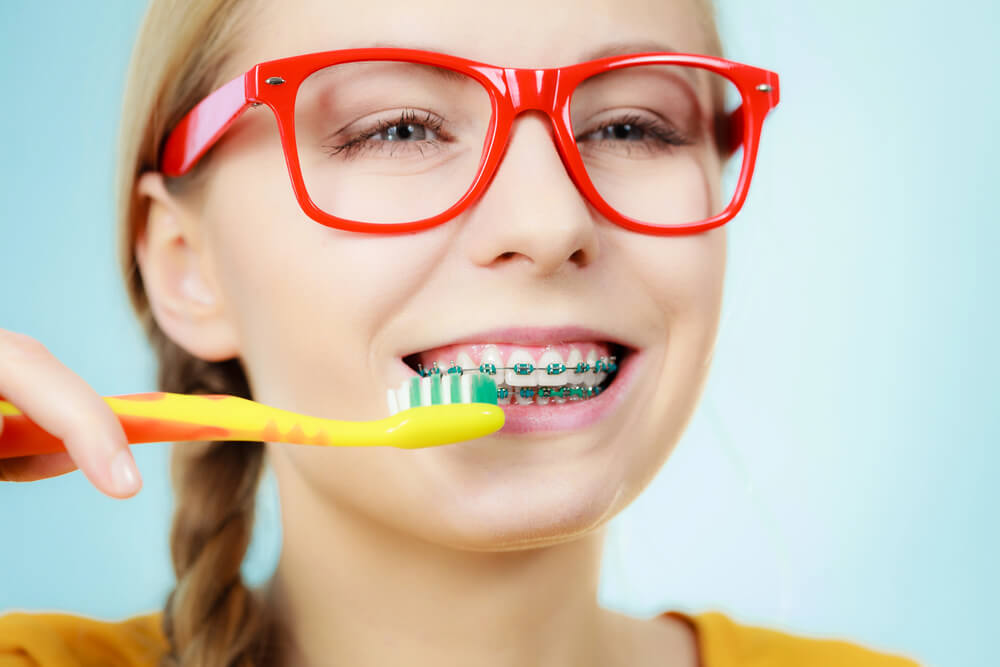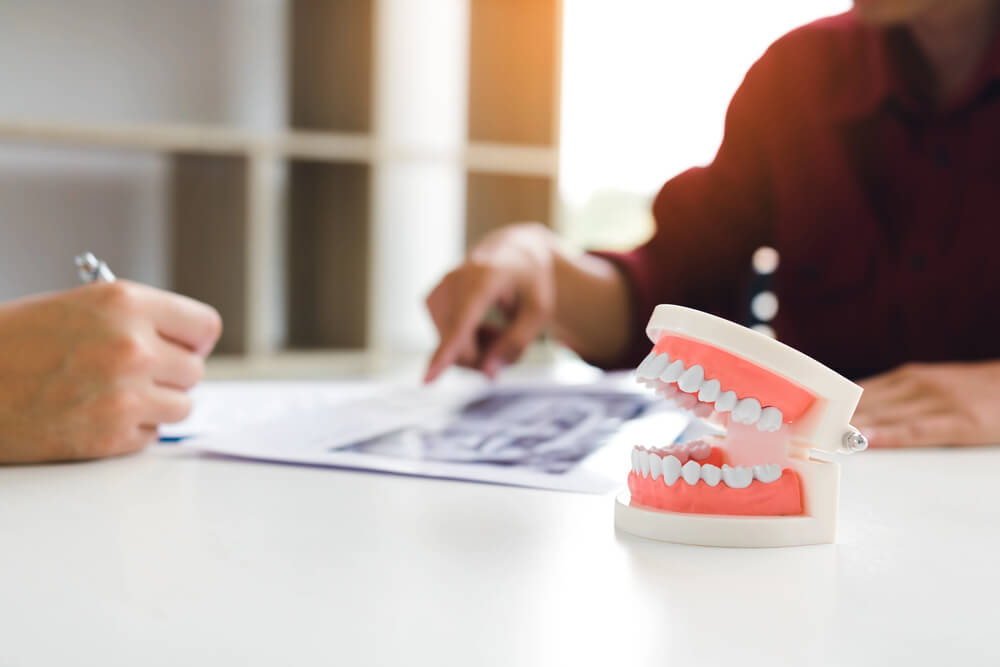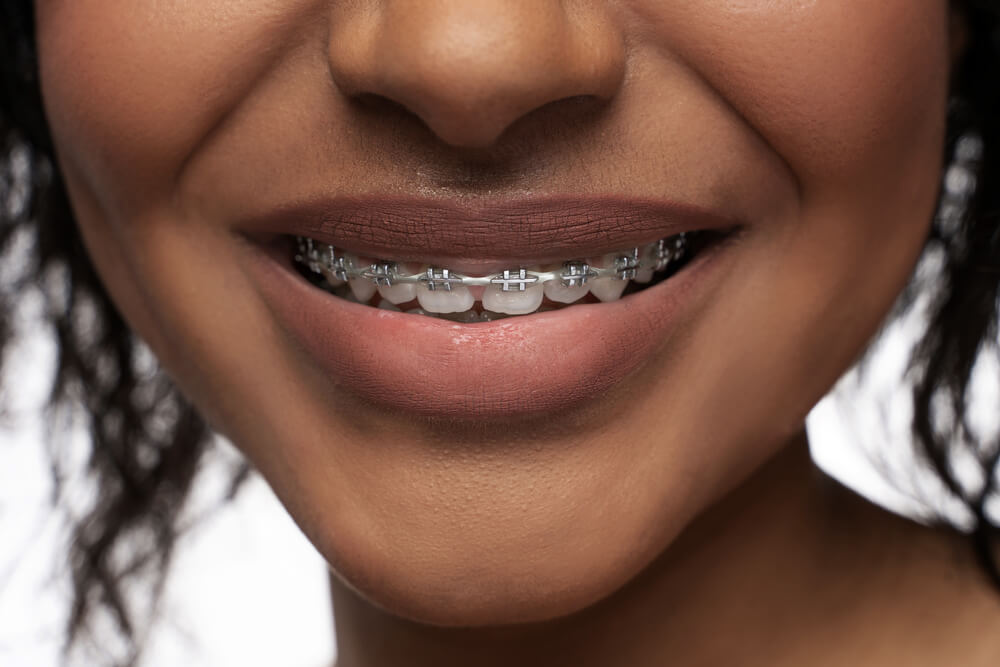Though braces can be an excellent tool for straightening teeth, they come with some challenges. For example, orthodontic patients sometimes experience swollen gums. Swollen gums with braces can cause discomfort, irritation and even difficulty cleaning your teeth.
How Do You Handle Swollen Gums With Braces?
Swollen gums are a common issue for individuals wearing braces, but with proper care and attention, they can be managed. Several factors can cause swollen gums, and there are ways to manage and prevent the discomfort.
Why Are My Gums Swollen With Braces?
Swollen gums with braces may be the result of several factors. Understanding the specific cause of gum swelling with braces can help you address it properly.
Poor Oral Hygiene
When you wear braces, it’s easy for food particles and plaque to get trapped around your brackets and wires. If you don’t clean away these particles, bacteria can accumulate, which can lead to gum inflammation and swelling. This condition is known as gingivitis, the first stage of gum disease. Gingivitis is reversible with improved oral hygiene, but if left untreated, it can lead to more severe gum issues.
Irritation From Braces
The brackets and wires of braces can sometimes irritate the soft tissues in your mouth, including your gums. This irritation may occur if your braces wire is poking your gums. Over time, the constant rubbing can lead to redness, swelling and discomfort in the gums.
Hormonal Changes
Hormonal changes, particularly during puberty, pregnancy or menstrual cycles, can make your gums more sensitive and prone to swelling. This happens because hormones increase blood flow to the gums, causing them to become inflamed more easily in response to the irritants that come with braces.
Changes in Diet
During orthodontic treatment, your diet may shift to include softer, carbohydrate-rich foods that are easier to eat with braces. If these foods end up sticking to your braces, they may provide a feeding ground for bacteria, which can contribute to gum swelling.
Tooth Movement
As your teeth shift into their new positions, your gums must adapt to the changes. This process can cause mild irritation and inflammation in the gums, which may make them look and feel swollen.
How To Get Rid of Swollen Gums With Braces Overnight

While swollen gums typically don’t resolve overnight, there are steps you can take to reduce discomfort and promote healing more quickly.
Though these steps can help alleviate discomfort and reduce gum swelling, it’s important to remember that you may not see an improvement right away. However, with consistent care, you may start noticing positive changes within a few days.
Improve Your Oral Hygiene Routine
An effective way to address gum swelling with braces is by improving your oral hygiene. Use a soft-bristled toothbrush to gently clean around your braces and gum line. Consider using an interdental brush or water flosser to get into the areas that are hard to reach. If you’re unsure how to floss properly with braces, your orthodontist can demonstrate the best techniques.
Ensuring you remove all plaque and food particles will help reduce inflammation and prevent further irritation.
Use an Antibacterial Mouthwash
An antibacterial mouthwash can help reduce the bacteria in your mouth that contribute to swollen gums. Rinsing your mouth with a saltwater solution may also provide some relief.
Mix about half a teaspoon of salt with a cup of warm water. Then gently swish the solution around your mouth for 30 seconds before spitting it out.
Apply Cold Compresses
If, when wearing braces gums are swollen and tender, applying a cold compress to the outside of your cheeks can help reduce inflammation. Hold the cold compress against the swollen area for 15–20 minutes at a time, repeating as needed throughout the day.
Drink Plenty of Water
Staying hydrated is an important part of maintaining good oral health. Drinking water throughout the day helps wash away food particles and bacteria that can contribute to gum swelling. It also promotes saliva production, which is your mouth’s natural defense against harmful bacteria.
Avoid Irritants
If your gums are swollen, it’s best to avoid foods and drinks that could further irritate them. Spicy, acidic and sugary foods can exacerbate gum inflammation, so opt for milder options while your gums heal. Tobacco use can also increase your risk of gum problems, so quitting smoking or avoiding tobacco products can help improve your gum health.
Wax for Braces
If your braces wire is poking your gums, applying orthodontic wax over the sharp areas of the brackets or wire can reduce irritation. This will give your gums a chance to heal and prevent further damage.
In addition, you may wish to take an over-the-counter anti-inflammatory to help reduce the pain and swelling of your gums. Make sure you don’t have any issues or negative interactions with these types of medications before taking them.
Do I Need To See My Orthodontist for Swollen Gums With Braces?

In many cases, you can manage gum swelling at home, but there are situations when you should consult your orthodontist.
Swelling Is Persistent
If your gums remain swollen despite improving your oral hygiene and following at-home treatments, it may be a sign of a more serious problem, such as advanced gum disease. In this case, your orthodontist may recommend a professional cleaning or refer you to a periodontist for specialized care.
Continued Discomfort and Pain
Mild discomfort is normal when your gums are adjusting to braces, but if the pain becomes severe or persists for an extended period, you should seek professional advice. Your orthodontist can check whether your braces wire is poking your gums or causing undue pressure on them, and can make adjustments to alleviate the pain.
Signs of Possible Infection
If your swollen gums are accompanied by symptoms such as redness, pus or a bad taste in your mouth, it could indicate an infection. Infections require immediate attention to prevent complications, so you should contact your orthodontist or dentist as soon as possible if you notice these signs.
Difficulty Speaking or Eating
Swollen gums that interfere with your ability to eat or speak should not be ignored. An orthodontist can evaluate the issue and make necessary adjustments to your braces to prevent further irritation and discomfort.
We Can Help You Handle Swollen Gums With Braces
If you’re experiencing swollen gums with braces, our friendly and experienced team at Peterson Family Orthodontics is here to help. We’re committed to making your treatment as fast and comfortable as possible so you can spend more time enjoying your smile! If you have any questions or are interested in orthodontic treatment, contact us today for a free consultation.

